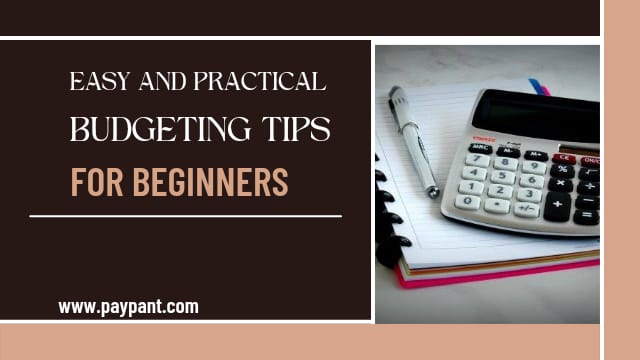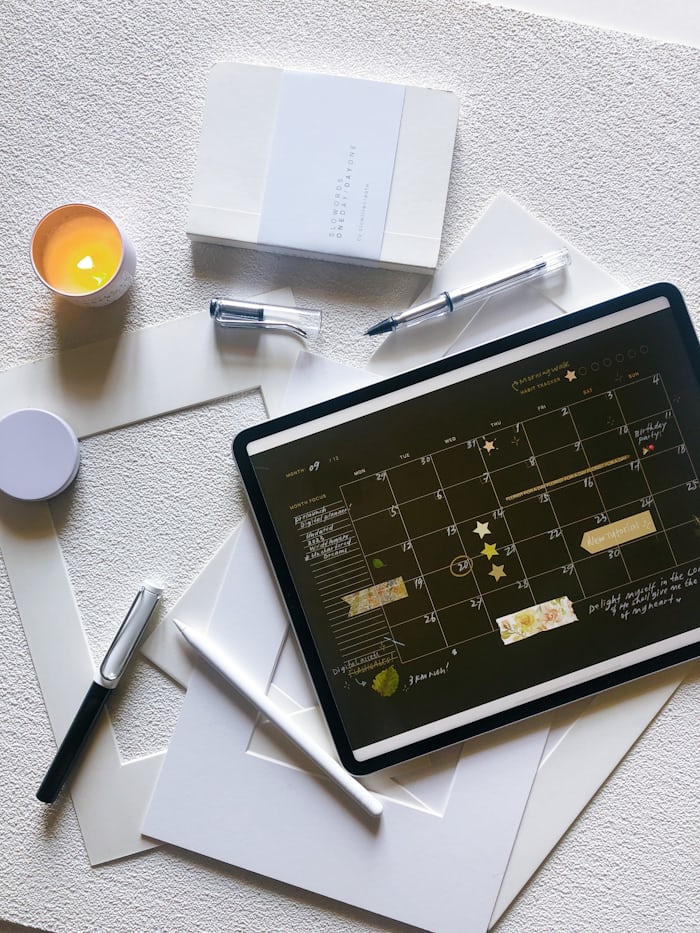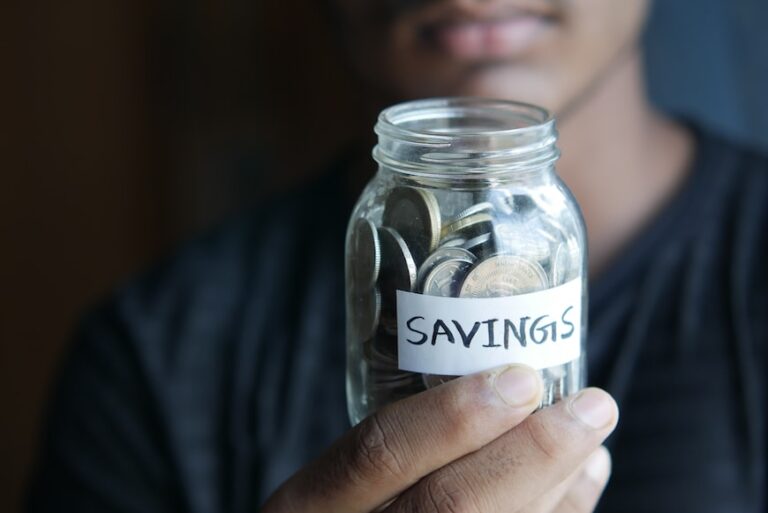Last updated Mar. 2, 2023 by Peter Jakes
Budgeting is a vital component of living a financially healthy life. It enables you to build a budget for your money so that you always have enough for the important things.
Rather than being limiting, these 17 Easy and Practical Budgeting Tips for Beginners will assist you in developing a clear image of the money you have to spend and can assist you in discovering more cash that you can utilize more efficiently.
Whether you want to save for a vacation or simply stop living paycheck to paycheck, making and sticking to a budget is a good way to get there.
People who budget set themselves up to get out of debt faster, save more money over time, and spend wisely. The best part is that practical budgeting habits may be implemented with only a few simple changes to your money routine.
Start by taking an honest look at your finances. Choose a budgeting system that works for you once you know where you are and what you want to do.
We recommend the 50/30/20 system, which divides your income into three main categories: 50% goes to necessities, 30% to wants, and 20% to savings and paying off debt.
Related: Budget Busters That Will Hinder Your Savings
Beginner Budgeting Tips
Everyone should be budgeting; hence if you are not, the best time is to start now as a beginner. Some things are important enough to do every day. We keep our bodies in good shape by brushing our teeth, drinking water, and being active.
So why is it so hard to take this kind of care daily with our money? Read on to find out about quick and easy tips you can do every day to stick to your budget.
Understand The Budgeting Process

Budgeting for beginners takes effort and practice, especially when you’re just starting. It’s not always fun to start a new habit. You’re already halfway there if you know why you want to do something.
Seeing and writing down your goals can help you figure out what they are. You could write a list of reasons to stick to a budget or make a vision board. Do whatever it takes to remember your budgeting goals!
Related: 30 Budget Busters That Will Hinder Your Savings
● Figure out your after-tax income
If you get a regular paycheck, the amount you get is probably it. If you have automatic deductions for a 401(k), savings, and health and life insurance, add those back in to get a true picture of your savings and spending. If you have other sources of income, like a side job, take out anything that cuts into it, like taxes and business costs.
● Choose a budgeting plan
Any budget needs to cover all of your needs, some of your wants, and most importantly, savings for emergencies and the future. The envelope system and the zero-based budget are two examples of budgeting plans.
● Track your progress
Write down your spending or use online tools to make a budget and save money. A big part of managing your money is regularly keeping your expenses. It not only shows you where your money goes, but it can also show you how you spend it.
You can keep track of your expenses in several ways, depending on what works best for you. Some people like a more hands-on method where you write down each transaction as it happens, while others like to use a spreadsheet to get a big-picture view of their monthly expenses. There are even apps that help you make a budget and keep track of your money for you.
● Automate your savings
Automate as much as possible so that the money you’ve set aside for a certain purpose gets where it needs to go with as little work as possible. A partner who holds you accountable or an online support group can help you stay on track with your budget.
Read more on How to Set Up Automatic Savings and put your savings money on Autopilot
● Practice budget management
Over time, your income, expenses, and priorities will change, so you must actively manage your budget by looking at it often, maybe once a quarter. Try these budgeting tips if you find it hard to stick to your plan.
17 Easy and Practical Budgeting Tips for Beginners
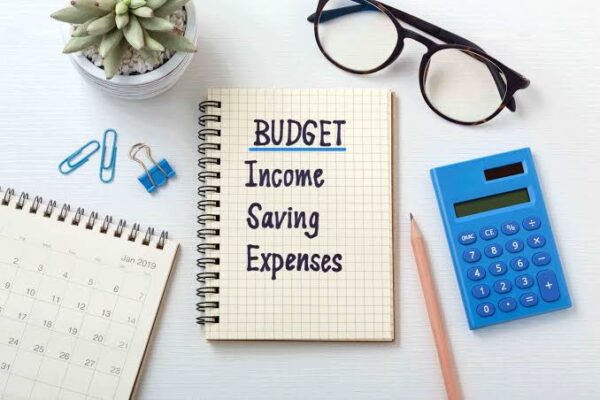
1. Create Your Budget Before the Month Begins
You have realized that you need to budget your income; the first thing to do as a beginner is to plan to stay on top of your budget. Sit down a week before the start of a new month and plan what you’ll do and how much you’ll spend that month. For example, you may have a road trip or vet appointment one month but not the next.
After you’ve planned out your month, make a budget that makes sense. Use our app to figure out how much you make, how much you need to spend, how much you spend on extras, and how much you put into savings.
2. Don’t Forget that Each Month is Unique.
Experienced budgeters may bypass treating each month as unique, but beginners to budgeting should not. You’ll need to set aside money for school supplies or regular car maintenance in some months. You’ll save money for trips, birthdays, and holidays in other months. No matter the event, you should plan for those costs in the budget. Pull up your calendar while making your budget, so those special events don’t sneak up on you. (Hint: This year, Christmas is again in December, guys!)
Make sure you change your budget every month to account for changes. Make a savings account where you can put money all year long. You will be stressed if you don’t have a plan. And that takes away all the fun of giving gifts and having a party. Nobody would want that!
Related: 13 Checking Account Benefits You Shouldn’t Overlook
3. Outline Your Needs and Wants

The first thing you do when you are new to budgeting is to make a long list of your wants and needs. “Needs” are important for your basic physical, mental, and financial health, like food, rent, and paying off debt. These should always be part of your budget, and the online budget calculator at Mint can help you figure them out.
The “wants” category covers almost everything else. Make sure to put these things in your budget as well. Think about the 50/20/30 rule, which says you should spend about 30% of your income on non-essential things that improve your life.
4. Try out Different Ways to Make a Budget.
There are as many reasons as there are ways to make a budget. Some people check in and track their money daily by hand. Others want to do the least amount of work possible, so they choose an app. First, learn to make a budget as a starter, then choose the right method. You can try out different methods first and stick to the one that resonates more with you.

5. Keep Track Of Paychecks
There are two main parts to making a budget, especially for beginners: figuring out how much you make and how much you spend. So you first need to add up all the money you get each month and figure out how much you have to spend.
Divide your expenses into three groups: 50 percent for what you need, 30 percent for what you want, and 20 percent for savings or paying off debt.
You can always change the numbers to suit your needs. Your budget should help you, not hurt you. You can also download a budget app to keep track of your budget and spending even more easily.
6. Practice Budgeting to Zero
As a beginner in budgeting, it’s important that when your budget until you have no money left over, you keep track of every dollar you earn and put it in your budget. Say, for instance, that you make $4,000 a month. After putting all of your fixed costs, contributions to savings, investments, and any other extras into your budget, you shouldn’t have any extra money. By making a budget that goes all the way to zero, you can see where your money is going and give each dollar you earn a purpose.
7. Start Looking at how you are spending your money.
The next step is to find out where your money is going. Checking your bank statement is a good place to start finding out.
Spend some time going through it and trying to figure out which categories are using up most of your money. Is it entertainment? Leaving? Groceries?
Start writing down everything you buy in a notebook, and then go through it at the end of the month. These are my favorite notebooks for budgeting and keeping track of my money.
It will not only give you a clear picture of where your money is going, but it should also make you more careful about how much you spend.
8. Use the Right Budgeting Tools
Beginners in budgeting are always confused about the right budgeting too to use. However, setting yourself up with the right tools ensures your success from the beginning. Track your money with a budgeting app like Personal Capital, or use apps to keep track of money spent on shopping or healthcare costs. Powerful budgeting tools can help you visualize where every dollar is going, remind you of bills and goals, and warn you when you’ve overspent in a category.
You can also start with Pen and Paper.
If pen and paper (or spreadsheets) aren’t your things, it’s time to join the 21st century and use a budgeting tool like the free ones here. You can focus on planning a budget and tracking your spending from the comfort of your smartphone! Plus, you can sync up your budget with your spouse, which is great for keeping that communication open.
Check out: What Is A Financial Safety Net? And Why Is It Important?
9. Keep Bills and Receipts Organized

A very important and easy budgeting tip for beginners is to start organizing their receipts and bills. Keeping your bills and receipts in order is important in case you need to dispute a bill and need to look it up. Organizing your receipt and bills could also help you with your taxes. Physical filing can be done with hanging files or expandable folders.
If you do this, sort your papers by month or by account, whichever makes more sense to you. You might want to keep everything on your computer if you get most of your bills and receipts by email.
10. Reduce or Get Rid of Credit Cards
If you want to stick to a budget as a beginner and get out of debt, you need to get rid of your credit cards for good. Don’t use them! You can cut them up, shred them, or even use them to make something. No matter what you do, get rid of them.
If you don’t have any credit card debt, you won’t have to worry about minimum payments, fees, or high-interest rates. You’ll also feel a lot less stress and worry. Use your debit card (or even cash!) and get rid of your credit cards like they were your ninth-grade crush. Do you know what’s great about a debit card? Your bank account is charged right away. A middleman isn’t charging you 15% interest.
Related: How to Change Your Credit Card Due Date
How to Cancel a Pending Transaction on a Credit Card, Debit Card, and PayPal
11. Plan For Large Purchases
Planning for large purchases is basic and efficient budgeting advice that anybody just getting started should implement. If you want to buy something expensive, such as a new laptop or television, you must plan ahead. Set a date for purchasing the item and divide the price by the number of days until that day.
For example, if you want to buy a $1,500 computer in 300 days, you only need to save $5 every day. Planning your large expenses prevents you from putting the item on your credit card, which might put you in a lot of debt and force you to pay interest until the balance is paid off.
12. Include a Contingency Category in Your Budget
Occasionally, an expense won’t blend seamlessly into a category in your budget. That’s why it’s good to have a backup plan. The catch is that you can’t use it as an excuse to spend more in other areas of your budget. If you always go over budget on food, shopping, or anything else, you might want to change your budget instead of putting the extra money into your emergency fund.
13. Use Separate Accounts and Automate Responsibly.
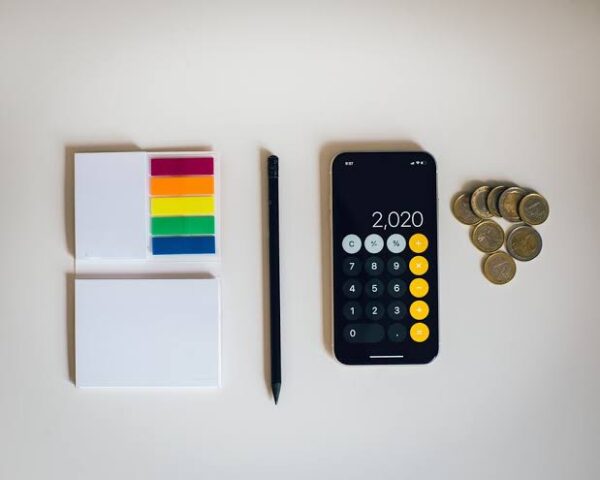
Having more than one checking account has helped many people keep track of their finances. Immediately you begin budgeting, set up more than one checking account. For example, if you keep your rent and car payments in a separate checking account, it’s easy to see how much money you have each month for things like food.
Also, use automation to your advantage. Technology can help you make a budget and keep you from having problems. So why not let it do some of the work for you? Set up automatic transfers so you don’t have to think about paying your bills or saving money, and use budget apps to track how much you spend.
Keep an eye on everything you’ve set up to run by itself. Some of the monthly subscriptions you pay for may no longer be useful to you. You might only need one more if you already have three streaming music subscriptions.
See also, How to Set Up Automatic Savings and put your savings money on Autopilot
14. Prioritize Debt Repayment
You might want to start a budget as a beginner and save up for a trip or car, but it might be better to put those ideas on hold and focus on paying off your debt. Putting your debts in order of importance could save you money on interest and reduce financial stress. Having less debt is important because it affects how well you use your credit. Be aware that using more than 30% of your credit limit could hurt your credit score.
Once you’ve got a 401(k) match, if one is available, pay off your high-interest credit card debt, payday loans, title loans, and rent-to-own payments. All of them have such high-interest rates that you end up
Related: Best Personal Loans with Low-Interest rates
15. Start Contributing to Retirement Now

You’ve probably heard this before, but we’ll say it again: it’s never too early to start saving for retirement. Get your employer to match your retirement savings as much as possible if you can. After all, it’s free money. Starting early will keep you from putting extra strain on your budget as you try to catch up later.
After you’ve paid off any bad debt, the next step is to get ready for retirement. Save 15% of your gross income. This includes any matching funds from your employer, if there are any. If you’re young, you might want to put money into a Roth individual retirement account after you get the company match. Once you’ve put in the most you can to your IRA, go back to your 401(k) and put in as much as possible.
Related: Steps to take 10 Years Before Retirement
How much money is enough for retirement
17. Avoid Situations Where You Know You’ll Spend Money.
We advise beginner budgeters to stick to their budget because controlling spending is the hardest part. Try not to put yourself in situations where you know you’ll spend money, like going out to dinner or getting a pedicure. The best way to stick to a budget is not to pay other people to do things you can do yourself until you can afford to pay others to do those things.
Set aside one day or a few days a month when you don’t spend any money. Instead, cook meals at home or do things that don’t cost anything.
You might be surprised at how much you save if you find days to avoid spending when you begin budgeting.
To further help yourself, check in on your spending every few weeks (or whenever it makes sense) to see how you’re doing and if you need to change anything in your budget. Set reasonable spending goals. If you are too strict with yourself, you may buy things on a whim.
Why Beginner Budgeters Should Revisit Their Budget From Time to Time
Since we’ve already said that costs can change from month to month or come up once in a while, like wedding gifts or car repairs, you should keep going back to your budget. Income can also change. You might have made more this month from walking dogs than you did last month.
If you look at your budget at least once a month, you can deal with changes as soon as they come up. If you have a family budget, a check-in also gives you a chance to talk about money with your partner.
Depending on your style and how you choose to do things, you may decide to check in more often. That’s fine, too.
Don’t Forget to Factor in Fun and Celebrate Your Budgeting Milestones
Most budgets work out well if you leave some room for fun things. When you know you have a little room to see a movie, splurge on a facial, or go to a new bar, you’re much more likely to stick to your budget. Imagine this as a planned cheat day for your money.
Give Room for Surprises in your Budgeting
Don’t think that your budget will be just right. There will be surprises, and some expenses, like the occasional impulse buy, may slip through the cracks. But you can take steps to make it less painful.
Set aside a small amount of money each month to cover small costs and make regular payments to an emergency fund. So, if your car breaks down or something else comes up, you won’t have to use a credit card or loan.
Read also, 21 Ways To Make Budgeting Fun
Extra Budgeting Tips for Beginners
● Set Realistic Financial Goals
Not only do you need to know why you want to make a budget first, but it’s also very important to think about specific numbers.
How much do you want to get rid of each month? How much do you want to save in case of an emergency? How much money do you plan to save for your retirement?
Outline all these in your financial goals.
● Make Sure Your Goals Are Realistic
Our final easy and effective budgeting tip for beginners in defining their budgeting goals is to be realistic. Sure, it would be great if you could save $200 a month for a trip or pay off all your student loans in 2 years.
Related: 15 Benefits of Paying Off Students’ Loan Early
Effective budgeting might not always be possible unless you are willing to live cheaply. You’ll have to start small to make a budget from scratch. Small changes that are made repeatedly add up to big wins.
Don’t forget that you can always change your budget to save more money in the future. Start by setting reasonable goals, and you’ll be well to becoming a good budgeter.
Categories of Expenses For Beginners
When you start making a budget, once you know where your money is going, you’ll need to tell the difference between regular and one-time expenses. Most expenses fall into one of these three groups:
1. Monthly Expenses
Water and electricity bills, rent, and insurance are all things that must be paid regularly. It can also include the cost of medications you take monthly or the money you pay your dog walker each week.
2. Yearly Expenses
Regular expenses are items in your budget that you expect to occur regularly. One such expense is taxes. You know you’ll have to pay them every year. Talk to a financial expert, estimate how much you’ll owe in taxes, and save that amount plus 10% just in case. You can budget for this monthly amount, so you don’t have to pay it all at once.
3. Occasional Expenses
Everything else falls under “occasional expenses,” which means they are harder to plan. You can guess how much your rent will be in 6 months, but the amount you spend on groceries can vary greatly.
Write down your regular expenses and ensure you have enough money in your budget to cover them each month, plus a little extra.
Related: Budgeting for Unexpected Expenses, Best Ways to Avoid Disaster
4. Savings
Savings can be divided into monthly, annual, or one-time expenses. Setting it up as a monthly expense is the simplest approach to keep it consistent.
Related: 45+ of The Best Apps For Saving Money
Bottom Line
As a beginner to the notion of budgeting, planning a budget is a vital step in improving your financial health, and it can be completed in less than an hour. Sticking to the plan will allow you to make the most of your money and offer you peace of mind knowing every dollar in your checking account is being used for a specified purpose.
It may take several weeks or months to properly implement a solid spending plan using these simple and effective budgeting tips for beginners. Budgeting is difficult, particularly if you’ve never done it before. Be realistic about your objectives, and forgive yourself if you overspend or make a mistake. With practice, you’ll improve your budgeting skills and discover the tendencies that lead to overspending and how to avoid them.
See How to Make a Personal Budget in 6 Easy Steps
Frequently Asked Questions (FAQs)
Q: How do you make a budget spreadsheet?
A: Begin by calculating your take-home (net) income, then assess your present spending. Finally, follow the 50/30/20 budget principle: allocate 50% of your budget to needs, 30% to wants, and 20% to savings and debt repayment. Start with this free blank budget worksheet
Q: How Can Budgeting Help Me?
A: A budget will help you make a plan of action and see where your money goes each month. A budget will help you reach your goals, whether you’re trying to get out of debt, save for retirement, or keep your grocery bill from getting out of hand.
When you think of budgeting as just spending your money on purpose, you’ll have more freedom to spend. Once you have a budget for something, you won’t feel bad about spending that money. Many people even say that when they make a realistic budget and stick to it, they find “extra” money.
Q: How Do I Separate Wants vs Needs In My Budget
A: After you’ve set aside money for recurring costs and savings, you can start thinking about creative ways to spend what is now your spending money.
As a beginner learning the tips for this budgeting, it frequently requires a total shift in how you think about money. More particular, it entails reconsidering the distinction between needs and desires.
Your needs are:
- Food
- Shelter
- Medicine
- Clothing
Anything you do for fun, like going out or buying clothes you already have, is a want, not a need.
As a beginner at budgeting, you should focus on your needs first. How much do you spend each month on groceries? Could that number be lowered? The next step is to think about what you want. If you want to save more money than you did before, you will have less money to spend on things you want.
How do you keep a budget?
A: The key to sticking to a budget is to keep track of your spending regularly so you can have a clear picture of where your money is going and where you’d like it to go instead. Here’s where to begin with budgeting:
- Examine your bank statements.
- Sort your expenses into categories.
- Maintain consistency in your tracking.
- Look into other options.
- Determine where there is room for improvement.
Budgeting can be simplified by using free online spreadsheets and templates.
Q: How Can I Make a Budget Quickly?
A: You are in Baby Step 1 if you still have debt and haven’t started saving for an emergency. So, in this step of your money journey, your goal is to save, save, save! Here is a budgeting guide I made just for you.
Our free budgeting tool is the fastest way to make a budget regardless of where you are in your financial journey. With the right budgeting worksheet or budgeting app, making a budget for next month is easy!
When you realize that budgeting isn’t meant to limit your freedom but to give you freedom, you’ll be on your way to loving your life and your bank account. That’s what we mean when we talk about making money.
Q: How do you figure out a budget as a Beginner?
A: Start by taking an honest look at your finances. Choose a budgeting system that works for you once you know where you are and what you want to do. We recommend the 50/30/20 system, which divides your income into three main categories: 50% goes to necessities, 30% to wants, and 20% to savings and paying off debt.

